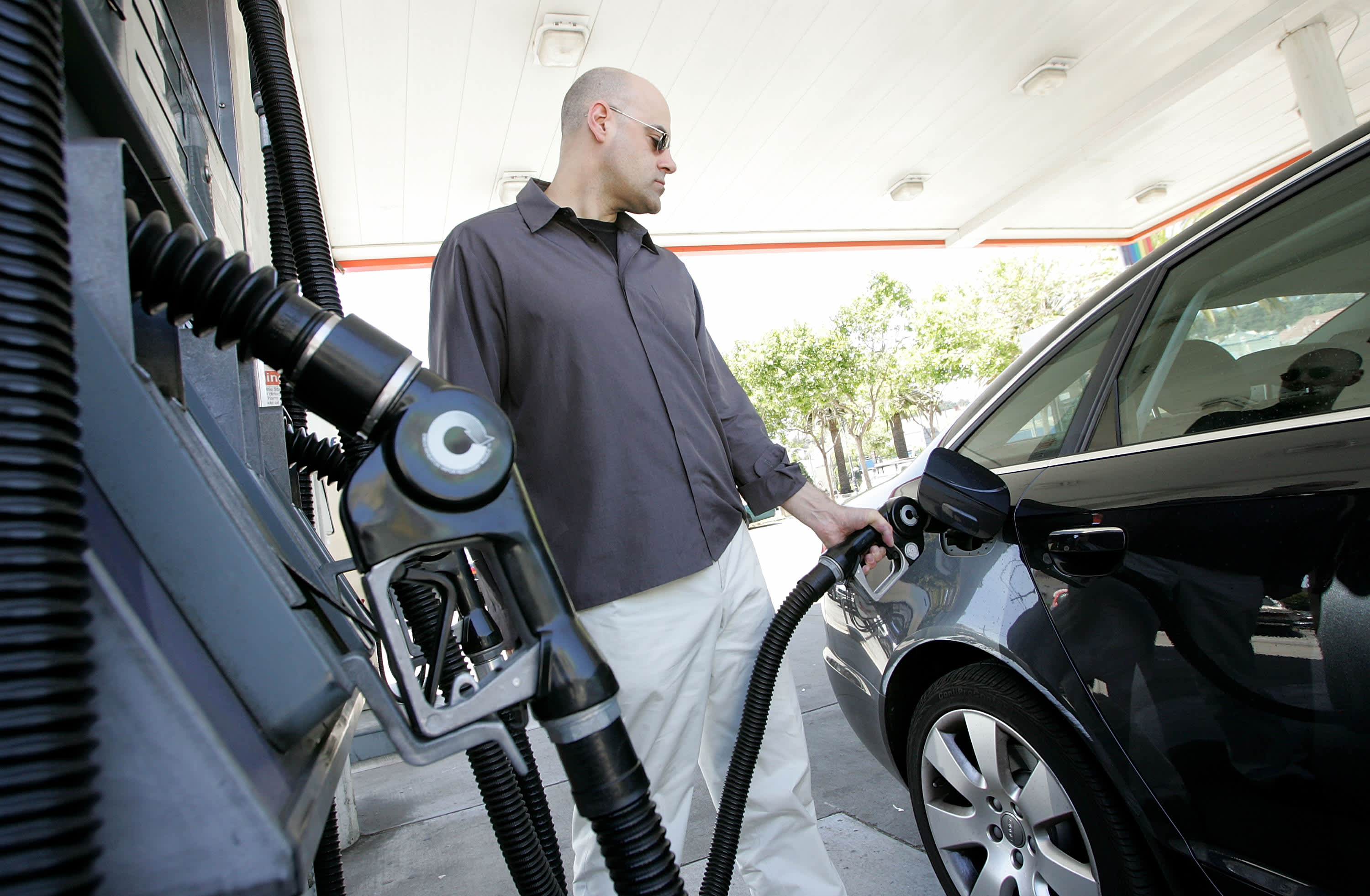Earth Day 2023: green or greenwashed?
Climate activists wearing masks of company CEOs including LVMH’s Bernard Arnault (2nd L) Facebook’s Mark Zuckerberg (C), Microsoft founder Bill Gates (2ndR) and Virgin Group founder Sir Richard Branson (R) on April 13th, 2023. | Photo by John MacDougall...
/cdn.vox-cdn.com/uploads/chorus_asset/file/24598251/1251776516.jpg)
Earth Day falls on April 22nd every year, and I’ve come to dread it. More often than not, as an environmental reporter, it means sifting through a million announcements from companies shouting about how they’re trying to save the planet.
Alas, most of the stuff I see is just greenwashing. It’s more about selling a product or an image of the company as sustainable and not about doing what’s necessary to take on the environmental crises the world faces — whether that’s climate change, plastic pollution, or e-waste.
When it comes to getting ourselves out of these messes, business as usual just isn’t going to cut it. Even if it’s sprinkled with a little recycling or tree planting, two popular tactics companies turn to that do little for the environment and, in some cases, can cause even more harm.
Here’s The Verge’s guide to the good, the bad, and the greenwashing this Earth Day. We were pleasantly surprised to see that Chipotle plans to give up some of its gas grills for all-electric equipment. But the devil is always in the details. And plenty of companies made splashy announcements that don’t really hold up under scrutiny.
This Earth Day, cut through the corporate climate hype
Photo by TOLGA AKMEN/AFP via Getty Images
With Earth Day around the corner, it’s that time of the year again when companies start doling out sustainability pledges like candy. Unfortunately, some of those promises can be misleading. So, The Verge spoke with sustainability experts for tips on how to tell whether or not a climate pledge is legit. They also shared advice on what companies should aspire to if they want to have a meaningful impact on climate change.
It truly is tough to suss out stronger corporate climate pledges from weaker ones. Most companies just aren’t transparent enough on what the climate commitments entail. And, even if there is fine print, it’s definitely not fun to sift through.
Apple wants to make its devices carbon neutral.
But climate pledges for individual products miss the big picture. A company might shrink the carbon footprint of a single device, for instance, but create more pollution overall by making more of those devices.
The most important thing a company can do to tackle climate change is to slash all of its emissions, from its supply chains to its products and operations.
Apple says it has “decreased its comprehensive carbon footprint by over 45 percent since 2015, even as the company’s revenue has grown by over 68 percent during that same period.” That’s the kind of progress to look out for to see if a company is serious about climate change.
Apple commits to using more recycled cobalt in its devices
Image: Apple
Apple has new plans to use more recycled metals in its devices. By 2025, the company plans to use 100 percent recycled cobalt in the batteries it designs. By the same date, it says magnets in its devices will contain entirely recycled rare earth elements. And circuit boards Apple designs will also be made with entirely recycled tin soldering and gold plating.
The tech industry has been under scrutiny for years for its hunger for mined materials, which inflicts harm on people and the environment. Apple and other companies have struggled with allegations of human rights violations along their supply chains for cobalt in particular, called “the blood diamond of batteries.”
The massive recycling warehouse fire is a stark reminder: plastics are a pollution nightmare
Image: Wayne County Emergency Management Agency
A massive blaze at a plastic recycling facility in Richmond, Indiana, is a terrifying reminder that plastics are a pollution nightmare, one that recycling can’t fix. The fire started Tuesday night at a recycling and resale warehouse, which officials described as six buildings filled from floor to ceiling with plastic waste.
“We’re looking at close to 14 acres worth of plastic that’s piled everywhere,” Richmond Fire Department chief Tim Brown said at a press conference on Wednesday. “The entire complex is either burning or has burned.”
Chipotle plans to ditch gas grills at 100 new locations
Image: Chipotle
Chipotle is switching from gas to electric grills at many of its locations as part of a plan to design more environmentally sustainable restaurants.
In 2024, Chipotle plans to open up at least 100 new locations that “utilize all-electric equipment,” the company announced yesterday. The fast food chain has a goal of slashing its greenhouse gas emissions in half by 2030, which is in line with what’s needed globally to meet the goals of the Paris climate agreement.
Recycled plastic won’t solve tech’s waste problem
Photo by LUIS ACOSTA/AFP via Getty Images
Buying a gadget made with recycled plastic instead of brand-new materials might sound like an environmentally friendly investment, but it does very little to cut down on the heaps of plastic pollution and electronic waste that are trashing the environment and ending up everywhere — including in our own bodies.
Think of plastic pollution like an overflowing tub in your bathroom, says Josh Lepawsky, a professor at Memorial University of Newfoundland who maps the international movement of electronic waste. “If you walked into that, probably the first thing you would do would be to turn off the tap — not grab a bucket and a mop, if you think of the bucket and the mop as recycling,” Lepawsky says. Turning off the tap equates to staunching the production of plastic goods. Trying to clean up a growing mess won’t address the root of the problem. “It doesn’t mean, don’t use a bucket and a mop. But that’s not turning off the tap.”

 FrankLin
FrankLin 
































